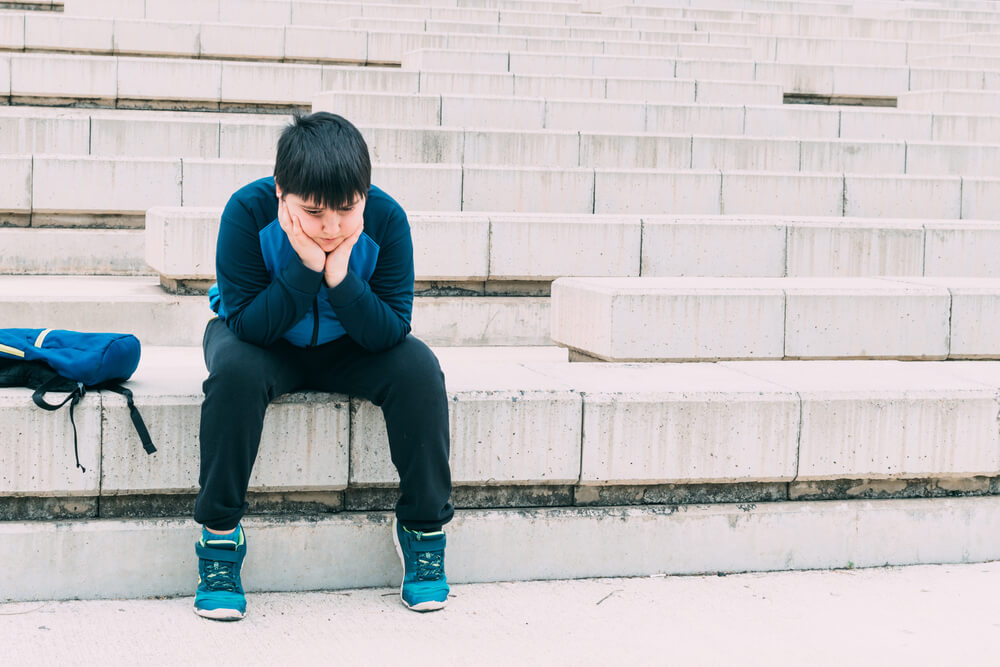It is normal for children to have fears and to experience mood swings. When they do not outgrow this behavior, you should have some concerns and perhaps seek out pediatric depression treatment. Read on to find out the signs of depression in children and how you can help.
Signs of Depression
Depression shows up in different forms among children of all ages. A low mood and sadness are common traits of this condition. It is more common to see low mood and sadness in younger children.
When a child becomes depressed, he or she tends to act out and become angry. On the outside, it looks like the child is having a temper tantrum.
The underlying reason for the behavior has to do with depression. The most common symptoms of depression are mood changes, sadness, and feelings of hopelessness. However, certain behaviors should put you on notice. A child dealing with depression may:
- Be easy to anger
- Withdraw socially
- Show increased sensitivity to rejection
- Have verbal outbursts
- Show changes in appetite
- Have low energy
- Find it difficult to function at school or other events
- Have impaired thinking
- Harbor thoughts of suicide
Every child will not display every symptom and sign listed. If any of these signs last longer than two weeks, then your child may be suffering from depression.

Keep a Diary of Behavior
It is common to have concerns and think about why your child sad. You may even ask your child if something is wrong. Your child will respond by downplaying what is really going on. It would make things easier if your child said, “I feel sad for no reason what should I do?”
If you are unsure, then you should not press the issue. Explaining depression to kids can get complicated. You can have this conversation after you do some research and talk to your pediatrician.
In the meanwhile, it helps to stay alert and keep a diary of the behavior. This diary allows you to track the mood swings and share your findings with a pediatrician.
Schedule an Appointment With Your Pediatrician
Parents must rule out any medical conditions for the behavior change. It helps to set up an appointment with your pediatrician as soon as possible. Some health conditions show symptoms that are similar to depression. Your pediatrician will perform a full examination. The results can help rule out a health condition for the cause of your child’s behavior.
If your child has depression, then your doctor may refer your child to a child psychologist. Depression is a serious condition, but it is treatable through medication and therapy.
Next, you will need to take your child for an evaluation with the child psychologist. Explaining depression to kids is a conversation to have with a psychologist. Your child may say, “I feel sad for no reason what should I do?” Parents are not always going to have the answers.
After the evaluation, your psychologist will diagnose your child’s condition. He or she also will recommend a treatment plan.
A variety of options are available for treating depression. Pediatric depression treatment depends on the severity and nature of your child’s condition.
Antidepressants
Antidepressant drugs are a form of depression medication for children. They are often used to treat depression and anxiety in children and teenagers. They work by balancing certain chemicals, often called neurotransmitters, in the brain.
Neurotransmitters are chemical messengers within the body. They send signals from nerve cells to muscles, glands, and other cells. The brain needs neurotransmitters to help with controlling functions within the body. These functions include:
- Mood
- Sleep cycles
- Appetite
- Concentration
- Heart rate
- Digestion
- Muscle movement
- Breathing
Antidepressants provide balance to the neurotransmitters that control emotions and mood. When your child sad, this medication can give him or her an emotional boost. Forms of depression medication for children can also treat the physical symptoms of depression. Antidepressants can improve sleep, concentration, mood, energy, and appetite.
It is important that you make an informed decision about your child taking antidepressants. This medication carries a Food and Drug Administration (FDA) black box warning. That’s because it can increase suicidal behavior and thoughts in people under the age of 25.
Of course, it is a little scary hearing about this warning. However, it helps to get the facts and find out what the warnings mean. You also must weigh the benefits against the risks.
Some psychologists prescribe antidepressants to children to help them cope with depression. If you decide to put your child on antidepressants, then you must monitor his or her behavior for any changes that concern you.
Cognitive Behavioral Therapy
If your child is suffering from depression, then you need to find out the underlying reason. Cognitive behavioral therapy (CBT) is a common form of treatment for adolescents dealing with a wide range of issues. It is a form of psychotherapy.
CBT puts the focus on making a connection between thoughts, feelings, and behavior. It is effective when treating depression, anxiety, substance abuse, and eating disorders, among many other issues. Your child psychologist will use CBT to identify dysfunctional patterns and help your child change them.
Here is an example of the connection between thoughts, feelings, and behavior:
- Thought – I am ugly
- Feeling – Anxiety
- Behavior – Teen sits alone at lunch and does not interact with other students
Your child psychologist will try to change this negative way of thinking. He or she will challenge your child to talk to other peers at school. At the next meeting, the psychologist will ask about the outcome.
Your child should receive some positive reinforcements from being more social. If your child experiences success, then he or she will no longer feel unattractive. These successes and reinforcements give your child confidence.
Changing the thought process reduces anxiety. Some teens can get to a low point. They start to believe things about themselves that are untrue.
These teens then become easy to manipulate, and their thinking becomes distorted. For example, a student could say to a peer that he or she is not attractive enough to try out for the cheerleading team. A depressed teenager would believe the comment and not attempt to try out for the team.
CBT helps kids confront distorted core beliefs and change them. Unhealthy thoughts contribute to mental health problems.

Lifestyle Changes
The right pediatric depression treatment often comes down to severity. If your child has a mild case of depression, you may need to simply change their lifestyle. These changes may include:
- Building a support system
- Getting regular exercise
- Managing stress
- Using relaxation techniques
Parents must be proactive in keeping their children in a healthy mental space. It helps to talk to your child about living a healthy lifestyle. It means eating healthy and staying active. Also, encourage your child to have a healthy mindset. You can start the mornings off with positive affirmations.
It will take a combination of treatments to improve your child’s mental health. You must pay close attention to the changes in your child’s behavior and get support if needed. Are you interested in learning more about pediatric mental health? Call us today to make an appointment for your child.




